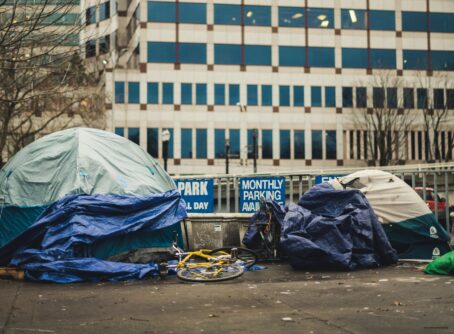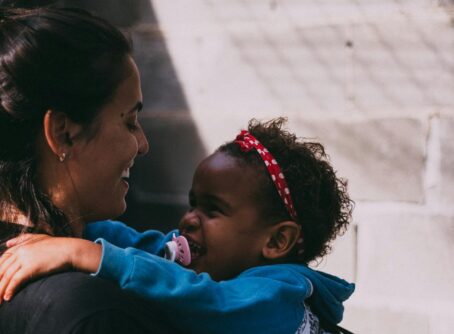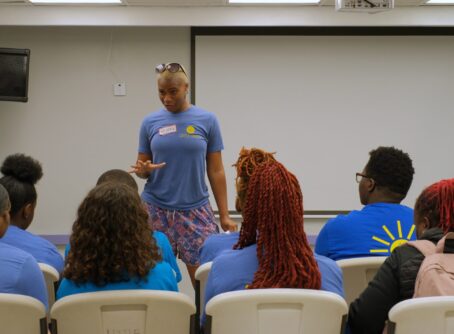On July 14, the U.S. Small Business Administration (SBA) announced the launch of its new Center for Faith. Housed in the SBA’s Office of Economic Development, the Center for Faith aims to facilitate access to capital, counselling and government contracting for faith-based businesses, community organizations and houses of worship, according to the SBA news release. It seeks to ensure that eligible Americans benefit from agency resources regardless of their religious affiliation. SBA administrator Kelly Loeffler shared with the Washington Examiner that the agency is “proud to uphold the principles of religious freedom that our nation was founded on.” Through these efforts, the new Center Center for Faith intends to build lasting relationships with faith-based organizations.
This recent decision from the SBA is not unprecedented, as seven other government agencies have their own faith centers. Among these agencies are the Department of Education and the Department of Commerce, with faith centers established in 2001 under the Bush administration and 2009 under the Obama administration, respectively. The creation of the SBA’s new Center for Faith follows President Donald Trump’s Executive Order 14205, in which he established the White House Faith Office, acknowledged the role of faith-based organizations in American society, and gave guidance to agencies accordingly:
“Agencies that lack a Center of Faith shall designate or appoint a Faith Liaison within the agency to oversee the agency’s efforts to assist the Office in carrying out this order…”
In addition to launching its new faith center, the SBA repealed a regulation that prohibited “businesses principally engaged in teaching, instructing, counseling, or indoctrinating religion or religious beliefs” from receiving disaster relief loans. Public discourse around this decision has associated the eliminated regulation with the Biden administration. However, the regulation had been in place since 1996, after President Bill Clinton directed all federal agencies to revise their guidelines, and the SBA clarified its policy to explicitly bar religious businesses from receiving disaster relief loans, as reflected in 120.110(k). Subsequent administrations had since maintained the regulation.
In response to the COVID-19 pandemic, the CARES Act enacted provisions that required the SBA to extend Paycheck Protection Program and Economic Injury Disaster Loan Program loans to faith-based businesses. This was only a supplementary provision, contingent on the global health crisis in 2020. Therefore, it did not constitute any permanent change to SBA policy. Within a year, nearing the very end of the first Trump administration, the SBA proposed a rule to remove regulations that excluded faith-based organizations from five subject programs, arguing that such provisions breached the Free Exercise Clause of the First Amendment. The proposed rule noted that the regulations precluded organizations from receiving loans regardless of whether the funds were employed for religious or secular purposes, as the exclusion was solely on the basis of faith identity.
On January 16, 2025, Rep. Tracey Mann, member of the House Committee on Small Business, introduced the Faith in Small Business Act to the House, seeking to codify the SBA’s 2021 proposed rule. The bill did not make it past committee referral, and the SBA’s proposed rule from 2021 remains just that. Now, four years later, citing the regulation’s incongruity with Trinity Lutheran v. Comer (2017), the SBA has made the decision to eliminate 120.110(k) from its regulations without a public comment period. As a result, religious businesses can receive SBA loans and are now no longer among the types of businesses considered ineligible.
CPJ Reflections: Equal Access, Longstanding Recognition, and the Regulatory Procedure
The SBA’s recent actions signal some important considerations for those concerned with public justice and institutional religious freedom.
First, making SBA resources available to religious organizations on the same terms as secular ones is a welcomed move. By removing its blanket exclusion of religious entities from disaster relief loans, the SBA affirms that faith identity alone should not be a barrier to participating in public programs. Equal access principles help ensure that communities served by faith-based enterprises—whether nonprofit ministries or faith-rooted businesses—are not denied support in times of need.
Second, this step continues more than two decades of bipartisan recognition that religious institutions contribute meaningfully to public life and should have equitable access to publicly available resources. Since the creation of agency faith offices under President George W. Bush, continued under President Barack Obama, and reaffirmed by subsequent administrations, both Republican and Democratic leaders have acknowledged that faith-based organizations—nonprofit and for-profit—play a vital role in economic vitality, education, and community well-being.
Third, the manner in which this regulatory change was made raises questions about process. Even if the outcome aligns with recent Supreme Court precedent protecting the rights of religious organizations, was there a disregard for the procedural safeguards of the Administrative Procedure Act (APA)? The APA governs how federal agencies create, amend, or repeal regulations to ensure transparency, accountability, and public input. The APA does contain a “good cause” exception, which an April executive order directs agencies to rely on in repealing unlawful regulations, but some have noted the order’s significance in that it is likely the first time a president has directed agencies to forego a notice-and-comment period under the APA. If agencies begin relying primarily on executive orders to bypass settled procedures, the precedent could erode public trust in the rule of law and encourage future presidents to do the same.
Expanding access to publicly available resources for religious organizations is a positive step toward a healthier pluralistic democracy. Yet, honoring due process through established legal frameworks ensures that such gains are secured in ways that foster broad acceptance, protect against politicization, and safeguard the religious freedoms of all.
Girien R. Salazar, Ph.D., is the Director of Faith-Based Policy and Research at the Center for Public Justice.
Melissa Mercedes is the Policy Associate at the Center for Public Justice.




